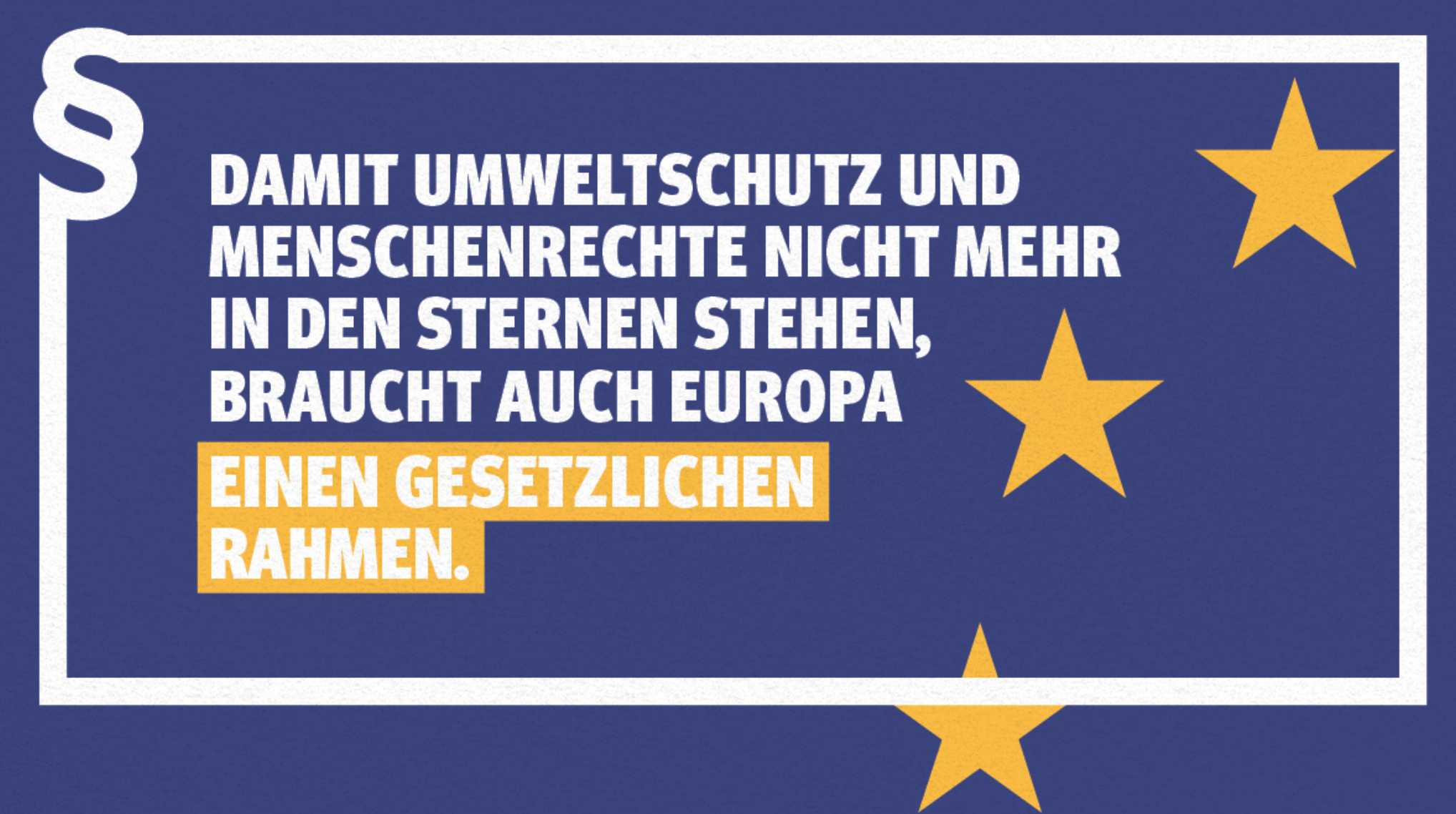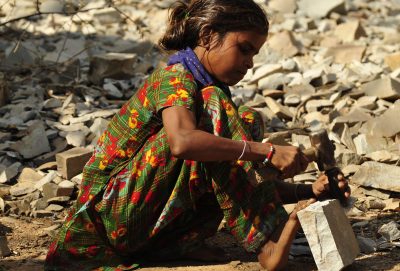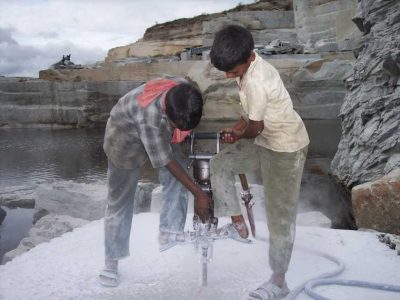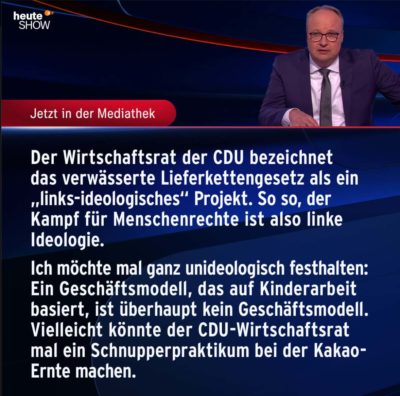The EU Commission postpones the draft of the LkSG for the third time
 For the third time, the EU Commission has postponed the draft of the planned European supply chain law. The draft will therefore no longer be published this year as planned, but rather in March 2022 at the earliest. No reasons are given for the postponement. It is believed that the intervention of the “Regulatory Scrutiny Board” is responsible for this. This is a body of dubious democratic legitimation within the Commission: https://ec.europa.eu/info/law/law-making-process/regulatory-scrutiny-board_de
For the third time, the EU Commission has postponed the draft of the planned European supply chain law. The draft will therefore no longer be published this year as planned, but rather in March 2022 at the earliest. No reasons are given for the postponement. It is believed that the intervention of the “Regulatory Scrutiny Board” is responsible for this. This is a body of dubious democratic legitimation within the Commission: https://ec.europa.eu/info/law/law-making-process/regulatory-scrutiny-board_de
Numerous European civil society organizations and trade unions have therefore written an open letter to EU Commission President Ursula von der Leyen. There it says among other things:
“Despite your promise to come up with a ‘solid and balanced’ proposal in 2021, press reports have warned us that the SCG initiative is being further delayed. It is unacceptable that such an important new law, which can help millions of people demand justice against human rights abuses and help protect our environment and the climate, be postponed for the third time.
We are also deeply concerned about the total lack of transparency about the reasons for this new delay. The uncertainty about the fate of the legislation is very harmful to people suffering from irresponsible corporate behavior and to the environment. This inexplicable delay risks undermining the trust that European citizens, local and international civil society and trade union organizations, workers and victims of corporate abuse have placed in the EU to regulate sustainable and responsible business in the wake of the COVID pandemic and the climate and Biodiversity crisis. “
Please refer:
- You can find the open letter from European civil society to Commission President von der Leyen here: https: // Lieferkettengesetz.de/wp-content/uploads/2021/12/Open-letter-to-President-VDL-on-SCG-Delay.pdf
- The current survey on the consent of the European population to an EU supply chain law can be found here: https://corporatejustice.org/news/poll-shows-overwhelming-public-support-for-eu-law-to-hold-companies- liable /
December 10th is Human Rights Day. We would have liked to have been able to announce news from the EU that day promising increasing protection of human rights. It is therefore all the more important to support initiatives that campaign for human rights around the world, such as XertifiX or the Supply Chain Act initiative .
 SPD, Bündnis 90 / Die Grünen and the FDP today presented the coalition agreement to the future federal government. In it they commit themselves to the German and the planned EU supply chain law. The “Initiative Supply Chain Act” comments on this:
SPD, Bündnis 90 / Die Grünen and the FDP today presented the coalition agreement to the future federal government. In it they commit themselves to the German and the planned EU supply chain law. The “Initiative Supply Chain Act” comments on this: Sections of the European economy are fighting openly or behind the doors against the planned European supply chain law. The organizations “Corporate Europe Observatory” and the “European Coalition for Corporate Justice” have written a study that makes transparent how the economy has tried to influence politics in their favor in the last few months in order to achieve a possible binding European regulation dilute.
Sections of the European economy are fighting openly or behind the doors against the planned European supply chain law. The organizations “Corporate Europe Observatory” and the “European Coalition for Corporate Justice” have written a study that makes transparent how the economy has tried to influence politics in their favor in the last few months in order to achieve a possible binding European regulation dilute. On the occasion of the Day against Child Labor on June 12, 2021, the ILO and UNICEF publish the first joint study on child labor. Accordingly, between 2016 and 2020, worldwide child labor increased by 8.4 million to 160 million child laborers. These numbers are so alarming because the trend in the decline in child labor of the previous years has reversed. This means that the great goal of the United Nations – the elimination of all child labor by 2025 – has moved a long way off!
On the occasion of the Day against Child Labor on June 12, 2021, the ILO and UNICEF publish the first joint study on child labor. Accordingly, between 2016 and 2020, worldwide child labor increased by 8.4 million to 160 million child laborers. These numbers are so alarming because the trend in the decline in child labor of the previous years has reversed. This means that the great goal of the United Nations – the elimination of all child labor by 2025 – has moved a long way off!
 On the occasion of the Day against Child Labor (June 12th), the International Labor Organization (ILO / ILO) is organizing a virtual conference together with UNICEF on June 10th, 2021 at 2.30 p.m. (CET). Everyone is invited to take part; no registration is necessary!
On the occasion of the Day against Child Labor (June 12th), the International Labor Organization (ILO / ILO) is organizing a virtual conference together with UNICEF on June 10th, 2021 at 2.30 p.m. (CET). Everyone is invited to take part; no registration is necessary! Unfortunately, we are currently receiving worrying news from India. The Indian mutation of the corona virus ensures a massive spread of the virus and extremely high mortality. There is a lack of medical equipment and medicines. Internationally, India is therefore also supported by governments. However, the renewed strict lockdown in many parts of the country poses a further threat to the population. This is how we hear from our auditors in India:
Unfortunately, we are currently receiving worrying news from India. The Indian mutation of the corona virus ensures a massive spread of the virus and extremely high mortality. There is a lack of medical equipment and medicines. Internationally, India is therefore also supported by governments. However, the renewed strict lockdown in many parts of the country poses a further threat to the population. This is how we hear from our auditors in India:

